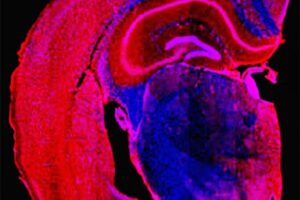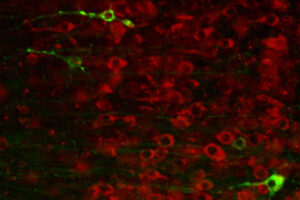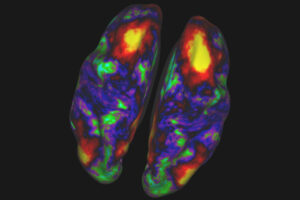Damaging tangles of the protein tau dot the brains of people with Alzheimer’s and many other neurodegenerative diseases, including chronic traumatic encephalopathy, which plagues professional boxers and football players. Such tau-based diseases can lead to memory loss, confusion and, in some, aggressive behavior. But there is no easy way to determine whether people’s symptoms are linked to […]
Antibody helps detect protein implicated in Alzheimer’s, other diseases (Links to an external site)









